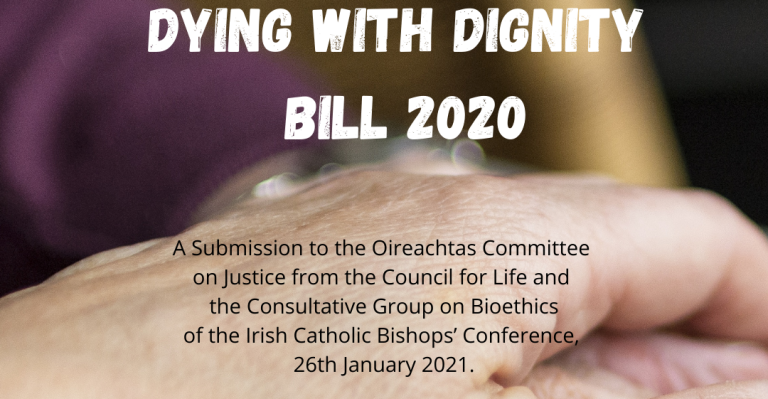On 12 February 2021, the Council for Life, and the Consultative Group on Bioethics, of the Irish Catholic Bishops’ Conference, made a submission to the Oireachtas Committee on Justice regarding the Dying with Dignity Bill 2020.
The bishops stated that, “while there are many important things that can and should be said about the question of euthanasia and assisted suicide, we understand that the role of the Committee is to assess this particular Bill. We acknowledge the request that submissions should focus on the provisions of the Bill in response to the 20 questions in the Framework for Committee Scrutiny of PMBs. The majority of these questions do not relate to the kind of ethical concerns which are the focus of our submission.” The key points of the bishops’ submission are:
- The submission is rooted in our conviction that we have a moral responsibility to care for our “neighbour” according to the Gospel image of the Good Samaritan.
- Within existing law and medical practice, good palliative care, by upholding absolute respect for human life and, at the same time, acknowledging human mortality, offers terminally ill people the best possibility of achieving “a dignified and peaceful end of life”
- While palliative care already provides assistance to those who are dying, this Bill provides for the medical endorsement and facilitation of suicide. Legislators need to honestly recognise the difference and call things by their proper name.
- Assisted suicide reflects a failure of compassion on the part of society. It is a failure to respond to the challenge of caring for terminally ill patients as they approach the end of their lives.
- The Bill would coerce the consciences of objecting healthcare providers in order to facilitate something they know to be gravely immoral and utterly incompatible with their vocation to heal. This burdening of conscience is unnecessary, disproportionate and seriously unjust.
- Whatever our prognosis and however limited our capacity, our value as persons is rooted in who we are rather than in our life-expectancy or our ability to reach certain standards of physical or mental performance.
The full content of the submission can be accessed here.
ENDS


